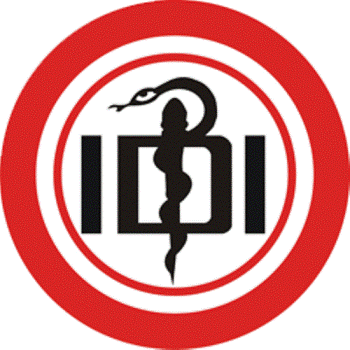[Intervention Review]
Routine prophylactic drugs in normal labour for reducing gastric aspiration and its effects
Gillian ML Gyte1, Yana Richens2
1Cochrane Pregnancy and Childbirth Group, Division of Perinatal and Reproductive Medicine, The University of Liverpool, Liverpool, UK. 2Elizabeth Garett Anderson and Obstetric Hospital, University College London Hospital Foundation Trust, London, UK
Contact address: Gillian ML Gyte, Cochrane Pregnancy and Childbirth Group, Division of Perinatal and Reproductive Medicine, The University of Liverpool, First Floor, Liverpool Women's NHS Foundation Trust, Crown Street, Liverpool, L8 7SS, UK. ggyte@cochrane.co.uk. (Editorial group: Cochrane Pregnancy and Childbirth Group.)
Cochrane Database of Systematic Reviews, Issue 2, 2009 (Status in this issue: Unchanged)
Copyright © 2009 The Cochrane Collaboration. Published by John Wiley & Sons, Ltd.
DOI: 10.1002/14651858.CD005298.pub2
This version first published online: 19 July 2006 in Issue 3, 2006. Last assessed as up-to-date: 30 December 2005. (Help document - Dates and Statuses explained).
This record should be cited as: Gyte GML, Richens Y. Routine prophylactic drugs in normal labour for reducing gastric aspiration and its effects. Cochrane Database of Systematic Reviews 2006, Issue 3. Art. No.: CD005298. DOI: 10.1002/14651858.CD005298.pub2.
Abstract
Background
Women in normal labour may sometimes go on to have general anaesthesia if labour becomes abnormal, for example if a caesarean section is required. General anaesthesia carries a very small risk of regurgitation and inhalation of stomach contents into the lungs. This can cause inflammation, particularly if the fluid is acidic, and can lead to severe morbidity and very occasionally mortality. Labour hormones increase the risk of gastric aspiration or Mendelsohn's syndrome, though the exact incidence is unknown. The routine administration of acid prophylaxis drugs to all women in normal labour is commonly practiced worldwide, to reduce gastric aspiration by reducing the volume and acidity of stomach contents.
Objectives
To assess the effectiveness of routine prophylaxis drugs for women in normal labour to reduce gastric aspiration and its effects.
Search strategy
We searched the Cochrane Pregnancy and Childbirth Group Trials Register (December 2005), EMBASE (1974 to April 2005) and CINAHL (1982 to April 2005).
Selection criteria
Randomised and quasi-randomised controlled trials of women in normal labour assessing the routine administration of drugs (antacids, H2 receptor antagonists, dopamine antagonists and proton-pump inhibitors) compared with placebo/no treatment, and compared with other drugs for reducing gastric aspiration.
Data collection and analysis
Two review authors independently assessed eligibility, quality, extracted data and performed double-data entry.
Main results
Three trials were included, involving 2465 women, assessing the effects of antacids, H2 receptor antagonists and dopamine antagonists. There were no trials on proton-pump inhibitors. None of the trials were of good quality, and none assessed the incidence of gastric aspiration, Mendelsohn's syndrome or their consequences. All the studies assessed vomiting, and there was limited evidence that vomiting may be reduced by antacids (relative risk (RR) 0.46, 95% confidence interval (CI) 0.27 to 0.77, n = 578, one trial) or by dopamine antagonists given alongside pethidine (RR 0.40, 95% CI 0.23 to 0.68, n = 584, one trial). Comparisons between different drugs showed no significant differences, though the number of participants was small. There was no evidence that H2 receptor antagonists improved outcomes compared with antacids, though only one trial addressed this issue.
Authors' conclusions
There is no good evidence to support the routine administration of acid prophylaxis drugs in normal labour to prevent gastric aspiration and its consequences. Giving such drugs to women once a decision to give general anaesthesia is made, is assessed in another Cochrane review.
Plain language summary
Routine prophylactic drugs in normal labour for reducing gastric aspiration and its effects
No good evidence for drugs, like antacids, in normal labour to reduce the small chance of inhaling some stomach contents if general anaesthesia is required.
Caregivers are often concerned that some woman in normal labour may go on to have a general anaesthetic, either for a caesarean section in labour, or to remove the placenta after birth should it be retained. The concern arises because there is a very small risk that the woman might regurgitate and possibly inhale some of the stomach contents into the lungs (gastric aspiration or Mendelsohn's syndrome) during the general anaesthetic. This can cause severe lung and breathing problems, especially if the stomach contents are acid (low pH), and extremely rarely (one in a million) a woman may die from an anaesthetic problem. Giving drugs to reduce the volume of the stomach contents, or to make them less acid may help to reduce the problem. The review of trials looked to see whether giving such drugs routinely to all women in normal labour was effective. The review identified three trials involving 2465 women but none assessed gastric aspiration, probably because it is a very rare event. Instead the trials all assessed the incidence of vomiting, although there is no proven link between vomiting in labour and gastric aspiration during general anaesthesia. The review found some limited evidence that 1) drugs like antacids may reduce the chance of vomiting in labour, 2) H2 receptor antagonist drugs (like ranitidine) appeared to have a similar impact on outcomes as antacids and 3) dopamine antagonists (like metoclopramide) may reduce the chance on vomiting in labour when given alongside pethidine. Overall, there was no evidence that any of these drugs reduced the incidence of gastric aspiration or Mendelsohn's syndrome.
About Wiley InterScience | About Wiley | Privacy | Terms & Conditions
Copyright© 1999-2009 John Wiley & Sons, Inc. All rights reserved.
BLOG DOKTER SPESIALIS KEBIDANAN DAN PENYAKIT KANDUNGAN ( Obstetric's & Gynecologist Blog ) Sumatera Barat.,Indonesia
SAVE YOUR BABY'S, SAVE NEXT GENERATION'S
SAVE YOUR BABY'S, SAVE NEXT GENERATION'S
Search This Blog
- Universitas Andalas Website
- TRIGEMINAL NEURALGIA LECTURES AND TREATMENT
- Maternal and Child :Research and Article
- dr Firman. Abdullah SpOG/ OBGYN .Personal Edition
- dr Firman Abdullah SpOG / ObGyn.com
- Dr Djohanas Djohan Abdullah Memorial Hospital.com
- Bukittinggi International Hospital.com
- Aliansi Rakyat Anti Korupsi Bukitinggi.com
Jam Gadang.Bukittinggi. Sumatera Barat .Indonesia
24.jpg)

Bung Hatta statue ,Bukittinggi
About me.....
IKATAN DOKTER INDONESIA (IDI).Sumatera Barat

INDONESIAN MEDICAL ASSOCIATION
ASSALAMUALAIKUM........
dr Firman Abdullah SpOG / OBGYN
Peer - Review..Cyberounds
Blog Archive
-
►
2008
(1)
- ► March 2008 (1)
-
▼
2009
(387)
- ► April 2009 (87)
-
▼
July 2009
(78)
- POST PARTUM DEPRESSION, MAYO CLINIC
- Aerobic exercise: Top 10 reasons to get physical
- Exercise and depression: A means of self-mangement...
- Prenatal education for congenital toxoplasmosis
- Treatments for toxoplasmosis in pregnancy
- Vaccines for women to prevent neonatal tetanus
- Routine prophylactic drugs in normal labour for re...
- Transient neurologic symptoms (TNS) following spin...
- To have or not to have: The critical importance of...
- Genital herpes in pregnancy: information for you
- Maternal positions and mobility during first stage...
- OVARIUM CYST
- BARTHOLINI CYST
- LEARN ABOUT CYTOMEGALOVIRUS
- Primary versus Nonprimary Cytomegalovirus Infectio...
- Detection of Parvovirus B19, Cytomegalovirus, and ...
- Common virus could cause high blood pressure
- Definition of Follicular cyst of the ovary
- The management of infants and children treated wit...
- Congenital cytomegalovirus infection in pregnancy:...
- FIGO Position Statement on Professional Standards
- FIGO Reaffirms Stance on Eliminating Female Genita...
- WHA for FGM resolution
- Countdown to 2015
- FIGO Awards In Recognition of Women Obstetricians/...
- FIGO launches project to improve maternal and newb...
- Breast screening 'the best discovery tool
- Ultrasound 'outperforms symptom analysis' on ovari...
- Invest in women, invest in society, UN official cl...
- Medical care needed' for miscarriage sufferers
- Caesarean 'should not be automatic choice for bree...
- Inadequate health care 'still costing lives'
- Natural birth techniques 'can be very efficient'
- Maternal mortality rates 'have not improved since ...
- Pregnant women and newborns 'most at risk from flu'
- Many induced labours 'should be avoided'
- Work demands 'can impact on pregnancy'
- Stillbirth conference aims to raise awarness
- Mothers 'should be aware of birth options'
- Pelvic exercises 'can help with childbirth and rec...
- Mother's diet 'can lead to medical complications'
- Cytomegalovirus infection and haemophagocytosis in...
- Severe cytomegalovirus (CMV) community-acquired pn...
- The management of infants and children treated wit...
- Congenital rubella infection after previous immuni...
- Antiviral therapy for herpesvirus central nervous ...
- RCOG statement on ‘It’s good for women to suffer t...
- Royal College of Obstetricians and Gynaecologists
- The Challenge of MDGs 4 and 5, South Africa
- RCOG/RCM statement – Advice on swine flu and pregn...
- Pregnancy, Breastfeeding and Swine Flu A/H1N1
- Postnatal quality of life in women after normal va...
- Systematic review of effect of community-level int...
- Peripartum cardiomyopathy
- Pulmonary embolism and pregnancy
- Amniotic fluid embolism
- Airway problems in pregnancy
- Acute asthma in pregnancy
- Circumcision helps protect men, not women from AIDS
- Health Tip: Help Prevent Birth Defects Steps you ...
- Health Tip: Does Your Child Have Symptoms of ADHD?
- Alzheimer's Disease
- The Problem with Adhesions
- The impact of adhesions on endometriosis
- Pain and Endometriosis
- Endometriosis and bowel symptoms
- Mesoprogestins (Asoprisnil) in the treatment of en...
- Diagnosis and long-term management of endometriosis
- Endometriosis Image Library
- Progesterone resistence in endometriosis
- BJOG release: Vaginal delivery vs elective caesare...
- Childbirth aged 35 and over - query bank
- Secondary cytomegalovirus infection can cause seve...
- Epilepsy research
- H1N1 flu (swine flu)
- Four things you can do to prevent infections
- Infections in newborn babies
- Fetal hydrocephalus
- ► August 2009 (54)
- ► September 2009 (21)
- ► November 2009 (4)
- ► December 2009 (11)
-
►
2010
(45)
- ► January 2010 (6)
- ► February 2010 (11)
- ► March 2010 (1)
- ► April 2010 (7)
- ► November 2010 (2)
-
►
2011
(4)
- ► February 2011 (2)
- ► March 2011 (2)
FEEDJIT Live Traffic Feed
Discussion Board
FEEDJIT Live Traffic Map
FEEDJIT Recommended Reading
FEEDJIT Live Page Popularity
dr Firman Abdullah SpOG / OBGYN

Subscribe to:
Post Comments (Atom)
BMI CALCULATOR
ACHMAD MOCHTAR GENERAL HOSPITAL BUKITTINGGI

RUMAH SAKIT ACHMAD MOCHTAR BUKITTINGGI
Firman Abdullah Bung
drFirman Abdullah SpOG / ObGyn

KELUARGA BESAR TNI-AD
Dr Firman Abdullah SpOG/ OBGYN, Bukittinggi, Sumatera Barat ,Indonesia
Bukittinggi , Sumatera Barat , Indonesia

Balaikota Bukittinggi
dr Firman Abdullah SpOG / OBGYN

Ngarai Sianok ,Bukittinggi, Sumatera Barat.Indonesia

Brevet in Specialist Obstetric's & Gynecologist 1998

dr Firman Abdullah SpOG/ObGyn


Dokter Spesialis Kebidanan dan Penyakit Kandungan . ( Obstetric's and Gynaecologist ) . Jl.Bahder Johan no.227,Depan pasar pagi ,Tembok .Bukittinggi 26124 ,HP:0812 660 1614. West Sumatra,Indonesia
Sikuai Beach ,West Sumatra ,Indonesia


Fort de Kock, Bukittinggi






No comments:
Post a Comment